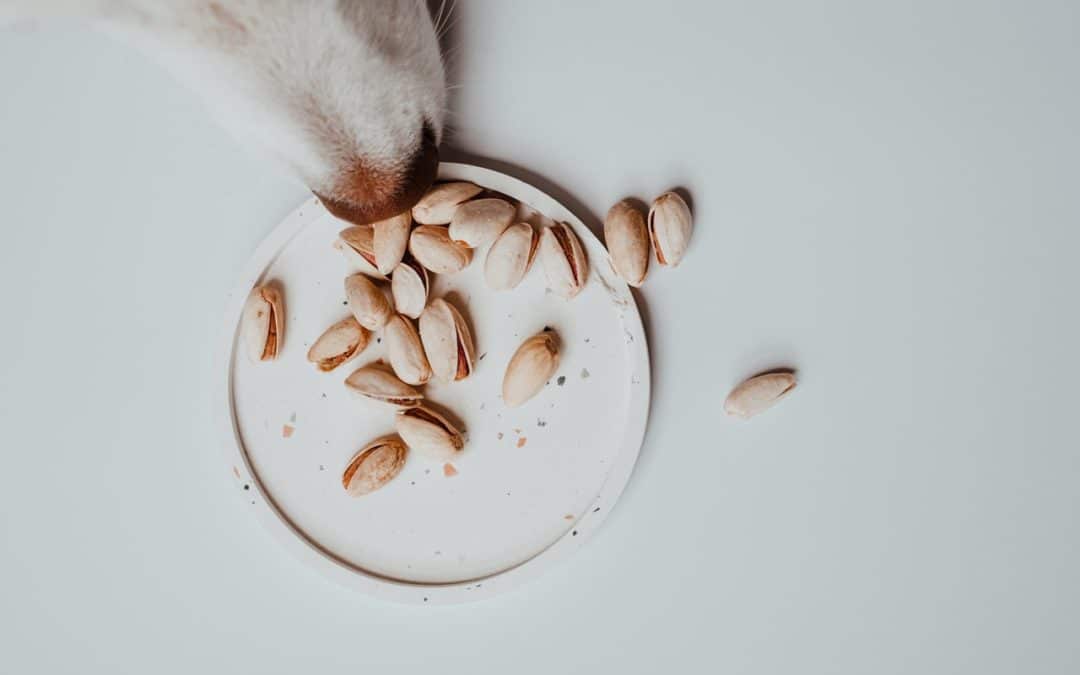Nuts are an all-natural, healthy snack for humans. But what about dogs—can dogs eat nuts, too? At Anasazi Animal Clinic, we get a lot of questions about whether nuts are safe for dogs, especially around the holidays when nuts are frequently included in snacks and desserts. While some nuts are not dangerous to dogs, others can be extremely toxic and even deadly, so it’s always best to keep nuts out of your pet’s reach.
Are any nuts safe for dogs?
If you’re wondering which nuts are safe for dogs to eat, the true answer is none. Even when nuts are not poisonous to dogs, they can still harm their overall health in a variety of ways.
- Nuts are naturally high in oils and fats. If they are frequently eaten or consumed in large quantities, they can cause obesity and pancreatic issues.
- Nuts can be very salty, causing a dog to become dehydrated. Excess salt can be very hazardous to dogs with urinary issues, heart disease, or kidney disease.
- The size, hardness, and irregular shapes of nuts pose a major choking hazard, especially for small dogs.
- Nuts often come encased in chocolate or spices that are also toxic to dogs.
We know that dogs love peanut butter—sometimes it’s the only way that dog owners can get their canine companions to take their medications. While peanuts are technically safe for dogs to eat, peanut butter is very fattening and contains a lot of sugar, so moderation is key. If you do occasionally give your dog peanut butter, make sure that it does not contain xylitol—this sugar substitute can cause hypoglycemia and liver damage in dogs.
Which nuts are toxic to dogs?
The following nuts are not safe for dogs to eat:
- Macadamia nuts are very toxic to dogs and top the ASPCA’s Animal Poison Control list of dangerous foods.
- Dogs should not eat walnuts—black walnuts are very toxic to canines, and their large shape can also cause blockages in the digestive tract.
- Brazil nuts have an extremely high-fat content and are considered unhealthy for dogs to eat.
- Pistachios are a choking hazard due to their size, shape; both hulls and nuts and should be kept out of reach of dogs.
- Almonds also pose a choking hazard, and dogs should not eat them.
If you see your dog eat a nut that you’re uncertain about, call your veterinarian immediately for advice. If your dog eats nuts without your knowledge, the symptoms of nut poisoning may include:
- Vomiting
- Diarrhea
- Loss of appetite
- Low energy
- Muscle tremors
- Seizures
Veterinary Care for Dogs in Gilbert, Arizona
Are nuts safe for dogs? The short answer is always no! The vets at Anasazi Animal Clinic urge our clients to err on the side of caution and refrain from feeding nuts to their canines. There are lots of other dog treat options available that are much healthier. If your dog accidentally eats a nut or you suspect they may have, contact us immediately so we can advise you on your next steps.
Photo by Vie Studio from Pexels

